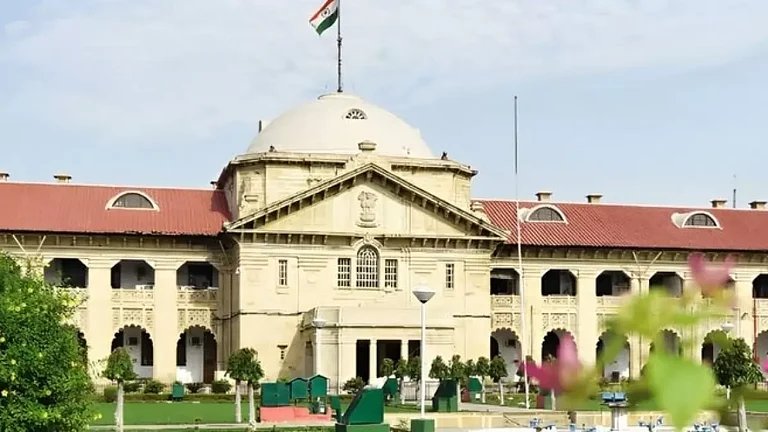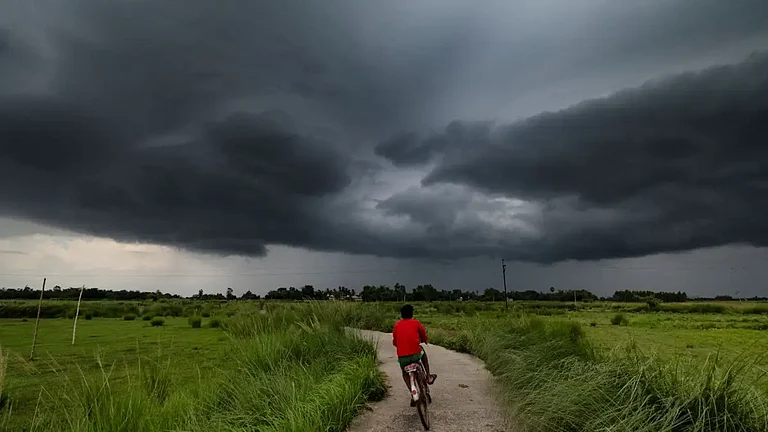The mass tragedy of the Hathras stampede, that officially killed 121 people, has once again revived the debate surrounding babas or self-styled godmen and people’s unhealthy obsession with them. Over the last decade, news of godmen like Gurmeet Ram Rahim Singh and Asaram Bapu, and their nefarious activities, have captured the media’s attention. Many have been imprisoned for fraud and rape. And yet the frenzy doesn’t seem to be dying down.
The tragedy in Hathras unfolded last week when 2.5 lakh people flocked to the 'satsang' programme of Bhole baba, which was organised between Fulrai and Mugalgarhi on GT road in Sikandar Rau area by Devprakash Madhukar and others. The organisers had only sought permission for about 80,000 people for which police and administration made arrangements. What followed after, saw mainly women and children getting trampled upon due to a rush of devotees who were trying to catch a glimpse of the baba. Kin of victims have alleged gross mismanagement on part of the district administration as well as the organisers of the religious congregation for not managing the event properly.
Godmen and their devotees
Bhole baba was arrested in 2000 for claiming to revive a dead girl. Not just him, several self-styled godmen in India have been convicted of heinous crimes but still enjoy the following of lakhs of devotees.
Asaram Bapu, who is a convicted rapist, was estimated to have established over 400 ashrams and 40 schools in India and abroad by 2013. Dera Sacha Sauda chief Gurmeet Ram Rahim Singh, who is serving a 20-year-jail term in Rohtak's Sunaria jail for raping two disciples, has been granted parole on multiple occasions despite also facing murder allegations. He was granted a 50-day parole in January this year, his ninth parole in the last four years, according to a report by Scroll. He has, on multiple occasions, claimed that he has more than ‘60 million’ followers worldwide.
While the claim might be exaggerated, the extent of his influence was seen in 2017 when his supporters destroyed government buildings, set fire to vehicles, petrol stations and TV vans after Ram Rahim was convicted of rape. At least 40 people were killed and over 200 injured in the violence, according to media reports.
But why do people believe in godmen?
Those who claim to be spiritual gurus or self-styled godmen also claim that they possess unique healing powers that can instantly solve the problems of their devotees who have been failed by society and the state. In the states of Rajasthan, Punjab and Haryana alone, nearly 2.5 million people follow godmen, Sukhdev Singh Sohal, a professor of history at Guru Nanak Dev University, told Reuters in 2020.
Many of these followers are also ready to die for this guru. “These spiritual Godmen have a prescription for all kinds of anxieties and fears and the followers can avail the magical remedy with the help of contribution in whatever form and quantity in favor of religious organisations of the Babas,” Minakshi Rana, a research scholar wrote in 2019.
While it is a common assumption that only the poor follow these godmen, research shows that often their most devoted followers come from the middle classes, and donations also stream in from Indians abroad.
In the case of Bhole Baba, who is a Dalit from the Jatav caste, his devotees largely belong from Scheduled Castes and Other Backward Classes, and many of them were also women – 108 precisely had died in the satsang. To his followers, the baba is a messiah, so much so that they would rush to collect the soil he walks on. He was known to solve 'domestic disputes' in the villages of western UP and was revered for having 'magical powers'. But will he continue to enjoy his status amid nationwide infamy against him?



























